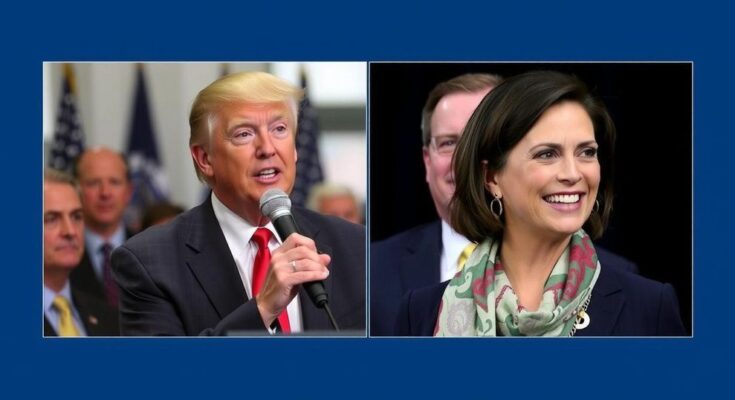The special elections in Virginia are a preliminary gauge of party strength leading to the 2025 gubernatorial race, with Democrats aiming to secure majority control against rising Republican momentum. Key issues include education funding, budget surplus allocation, and reproductive rights, which are shaping candidate platforms amid a significant political backdrop.
The recent special elections in Virginia represent a critical evaluation of party strength in advance of the 2025 gubernatorial race. As Republicans gear up to dominate both Congress and the White House, these elections offer insights into the political landscape following the general election held on November 5. Democrats aim to solidify their majorities within the state legislature, while Republicans seek to capitalize on perceived momentum in response to the national political climate.
In the contest for the 32nd Senate District, Democratic Delegate Kannan Srinivasan faces off against Republican Tumay Harding, spurred by the departure of U.S. Rep.-elect Suhas Subramanyam to Congress. Concurrently, in the 26th House District, Democrat J.J. Singh is up against Republican Ram Venkatachalam to fill Srinivasan’s vacated seat. Both races have garnered national attention, underscored by investments from the Democratic Legislative Campaign Committee, which seeks to emphasize their importance.
The Republican-leaning 10th Senate District presents a challenging landscape for Democrats, with Jack Trammell contending against GOP nominee Luther Cifers, following the exit of former state Senator John McGuire, R-Goochland, who transitioned to Congress. Here, Cifers enjoys a significant advantage in what is acknowledged as a Republican stronghold, evidenced by over 60% of voters previously backing President-elect Donald Trump and nearly 70% supporting Governor Glenn Youngkin in past elections.
As Virginia faces a $2 billion budget surplus, discussions are underway regarding the allocation of these funds. Democratic leaders champion increased investments in K-12 education, while both parties express interest in providing tax relief to the workforce.
Abortion rights have emerged as a defining issue in these special elections. Candidates Srivinasan and Singh have committed to protecting abortion access against the backdrop of unclear positions from their Republican opponents. Venkatachalam has not publicly stated his stance, while Harding noted her support for reducing the need for abortions but insists life begins “at conception.” In the 10th District, Trammell supports a proposed constitutional amendment aimed at safeguarding abortion rights, whereas Cifers maintains a strict “no exceptions” view opposed to abortion.
The Democratic leadership in Virginia’s legislature is vital for advancing potential constitutional amendments defending abortion rights. Consequently, the ongoing battle for control of the legislature is closely tied to broader national trends regarding reproductive rights, particularly as states brace for potential shifts pending the return of Trump’s administration. The aftermath of the U.S. Supreme Court’s decision to overturn federal protections in 2022 has continued to amplify abortion as a pivotal issue across both state and national discourse.
The context of the upcoming special elections in Virginia is shaped by significant national political dynamics. With the impending control of Congress and the White House by the Republican Party, the results of these elections serve as a pivotal barometer for public sentiment regarding party strength ahead of the 2025 gubernatorial race. The contests in key districts highlight the state-level implications of national political issues, particularly around reproductive rights, education funding, and the allocation of the state’s budget surplus, shaping the state’s legislative priorities moving forward.
The outcomes of Virginia’s special elections will provide crucial insights into the state’s political landscape as it gears up for the 2025 gubernatorial race. With Republicans aiming to gain momentum and Democrats striving to maintain their legislative majority, key issues such as abortion rights and budget priorities will likely dominate the discourse. As national trends influence local elections, the results may have lasting implications for Virginia’s governance and policy direction in the coming years.
Original Source: virginiamercury.com




